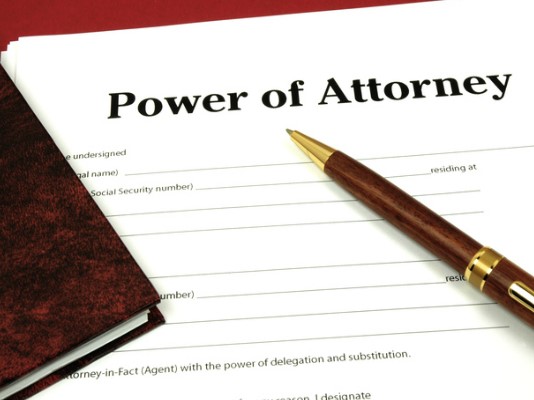A Power of Attorney (POA) is a legal document that grants one person (the "agent" or "attorney-in-fact") the authority to act on behalf of another person (the "principal") in specific legal or financial matters. The principal delegates certain powers to the agent, allowing them to make decisions and take actions on their behalf.
With a Power of Attorney, the appointed agent can perform various tasks on behalf of the principal, including:
• Managing Financial Affairs: The agent can handle banking transactions, pay bills, manage investments, and file tax returns for the principal.
• Making Legal Decisions: The agent can sign legal documents, contracts, and agreements on behalf of the principal.
• Healthcare Decisions: In some cases, a POA may grant the agent the authority to make medical decisions for the principal if they become incapacitated.
• Real Estate Transactions: The agent can buy, sell, or manage real estate properties on behalf of the principal.
• Business Matters: A POA can be used to empower someone to act on behalf of a business owner in managing the company's affairs.
A Power of Attorney is a critical legal tool that provides individuals with the ability to appoint a trusted person to handle important matters on their behalf. There are several reasons why you might require a Power of Attorney:
• Incapacity Planning: A Power of Attorney allows you to designate someone you trust to handle your affairs if you become incapacitated or unable to make decisions for yourself.
• Convenience and Efficiency: If you have limited time or are unavailable to handle certain matters personally, a POA allows your agent to act on your behalf, saving time and effort.
• Specific Legal Transactions: Some legal transactions, such as selling property or handling financial matters while abroad, may require you to grant someone else the authority to act on your behalf through a POA.
• Healthcare Decision-Making: A Healthcare Power of Attorney enables you to appoint someone to make medical decisions for you if you cannot communicate your wishes.
• Business Continuity: For business owners, a POA can ensure that essential business operations continue smoothly in their absence.
In summary, a Power of Attorney is a crucial legal document that provides flexibility and protection in handling various personal, financial, and legal matters. It empowers a trusted individual to act on your behalf, ensuring that your interests are safeguarded and important decisions are made as per your wishes, even when you are unable to do so yourself.
There are several types of Powers of Attorney (POA) that individuals can use based on their specific needs and requirements. Each type grants different levels of authority to the appointed agent. Here are the common types of Powers of Attorney:


• General Power of Attorney: This type of POA grants broad powers to the agent, allowing them to act on behalf of the principal in a wide range of legal and financial matters. It remains in effect until the principal revokes it or becomes incapacitated.
• Limited or Specific Power of Attorney: In contrast to a general POA, a limited POA restricts the agent's authority to specific tasks or transactions. It is often used for one-time or short-term purposes, such as handling a real estate closing or representing the principal in a particular legal proceeding.
• Durable Power of Attorney: A durable POA remains in effect even if the principal becomes incapacitated or mentally incompetent. It ensures that the agent can continue to act on the principal's behalf in the event of their disability.
• Springing Power of Attorney: This type of POA becomes effective only when a specified event or condition occurs, such as the principal's incapacitation. Until that event happens, the agent has no authority to act.
• Healthcare Power of Attorney (Medical Power of Attorney): A Healthcare POA empowers the agent to make medical decisions on behalf of the principal if they are unable to communicate their wishes. It comes into effect when the principal is unable to make healthcare decisions due to illness or incapacity.
• Financial Power of Attorney: A Financial POA grants the agent the authority to handle the principal's financial affairs, such as managing bank accounts, paying bills, and making investment decisions.
• Special Power of Attorney: A Special POA grants the agent specific powers to act on behalf of the principal in particular situations or for limited purposes. It can be tailored to meet the principal's unique needs.
• Non-Durable Power of Attorney: Unlike a durable POA, a non-durable POA becomes void if the principal becomes incapacitated or mentally incompetent.
It is essential to carefully consider the type of Power of Attorney that suits your specific requirements and consult with a qualified attorney to ensure that the document meets all legal requirements and effectively addresses your needs. Additionally, the laws and regulations regarding Powers of Attorney may vary from one jurisdiction to another, so it's crucial to seek advice from a legal professional familiar with the applicable laws in your region.
At our firm, we are a dedicated team of experienced legal professionals committed to providing exceptional legal services to our clients. With a focus on personalized attention and client satisfaction, we offer expert advice and representation in various areas of law, including criminal defense, civil litigation, family law, and business matters. Our firm's mission is to protect our clients' rights and interests, ensuring the best possible outcomes for their legal needs.